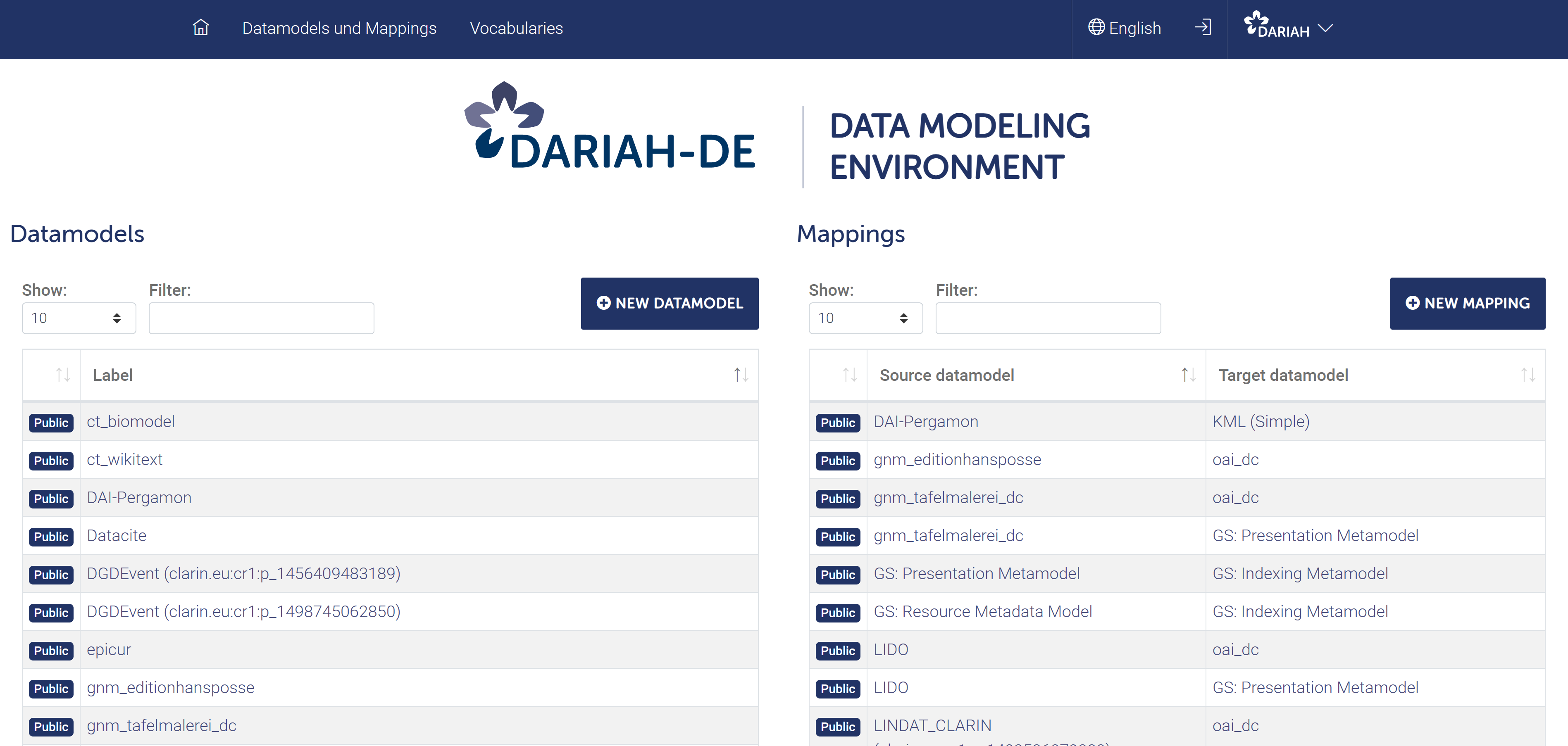
DARIAH-DE Data Modeling Environment
Environment for modeling data and their relationships.
The Data Modeling Environment (DME) is a tool for modeling and associating data. By means of the DME, data models and mappings between them are defined and provided in terms of interfaces (REST-API). Integrative services such as the generic search access data models and mappings of the DME and utilize them for further processing, transformation and integration of data. A special feature of the DME is that data can be modeled regardless of its disciplinary context, its degree of structure and complexity, and its further use. Thus, in addition to standards such as TEI, MODS and DataCite, data models and mappings of the DME also adress local and specifically developed schemas for which, for example, compliance with FAIR principles is to be achieved. The particular powerfulness of the DME with regard to the modeling of complex research data of the humanities and cultural sciences is based on the language-based approach to the definition of complex data and the associated explication of domain knowledge.
The DME source code is available under an open source license: https://gitlab.rz.uni-bamberg.de/dariah/dme
Further information on the main concepts of DME can be found in the following publications:
Henrich, Andreas; Gradl, Tobias (2021): The Integration of Research Data. How Can Research Infrastructures Help? In Eva-Marie Seng, Frank Göttmann (Eds.): DOKUMENT - OBJEKT - GENESE: DE GRUYTER, S. 767–802. Steyer, Timo; Gradl, Tobias (2019): A research-oriented and case-based data federation for the Humanities. DOI: 10.5281/zenodo.2536107 Gradl, Tobias/Henrich, Andreas (2016): „Data Integration for the Arts and Humanities: A Language Theoretical Concept“. In: Fuhr, Norbert et al. (Hg.): Research and Advanced Technology for Digital Libraries: 20th International Conference on Theory and Practice of Digital Libraries, TPDL 2016, Hannover, Germany, September 5?9, 2016, Proceedings. Cham: Springer International Publishing, S. 281–293 Gradl, Tobias/Henrich, Andreas (2016): „Extending Data Models by Declaratively Specifying Contextual Knowledge“. In: Sablatnig, Robert/Hassan, Tamir (Hg.): DocEng '16 Proceedings of the 2016 ACM Symposium on Document Engineering. New York, NY, USA: ACM: ACM, S. 123–126
This resource is supported by Text+. In case of questions you may get in touch with the Text+ helpdesk at textplus-support@gwdg.de.

The SSH Open Marketplace is maintained and will be further developed by three European Research Infrastructures - DARIAH, CLARIN and CESSDA - and their national partners. It was developed as part of the "Social Sciences and Humanities Open Cloud" SSHOC project, European Union's Horizon 2020 project call H2020-INFRAEOSC-04-2018, grant agreement #823782.

